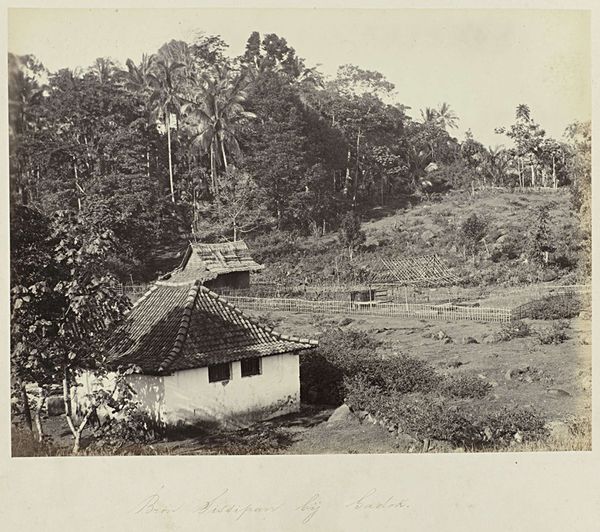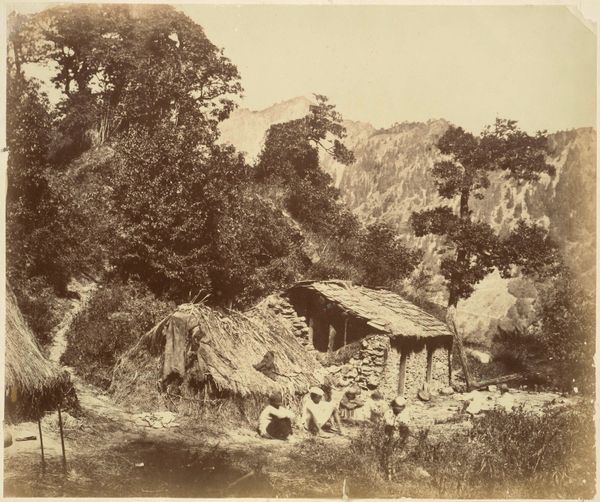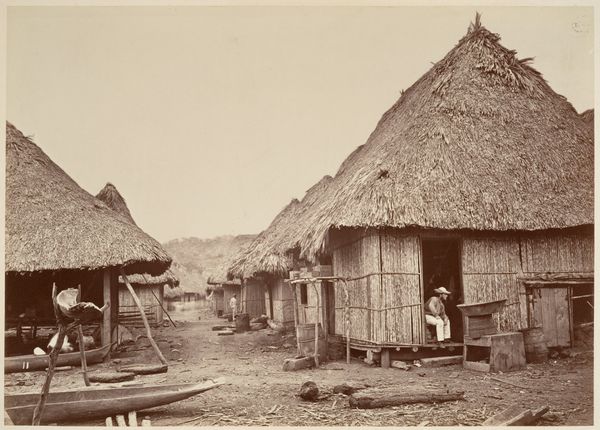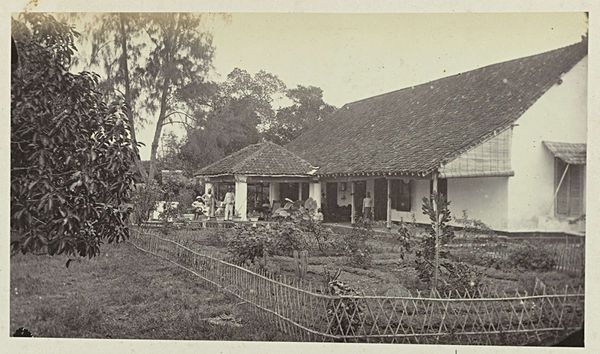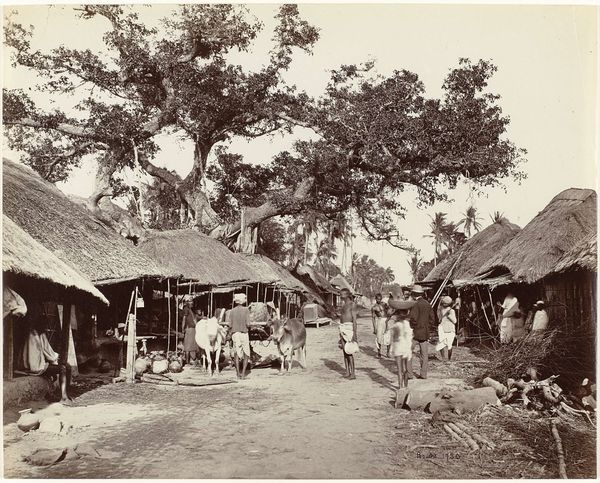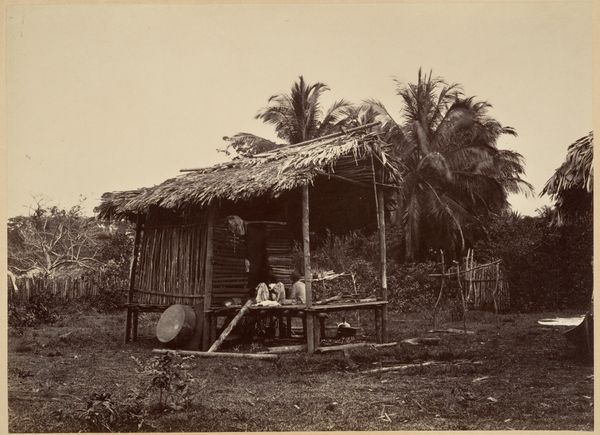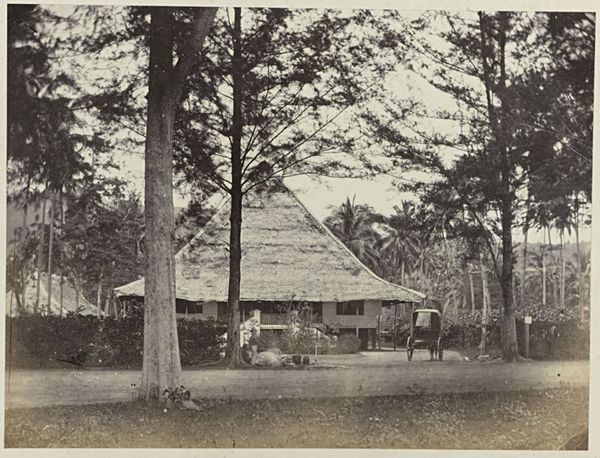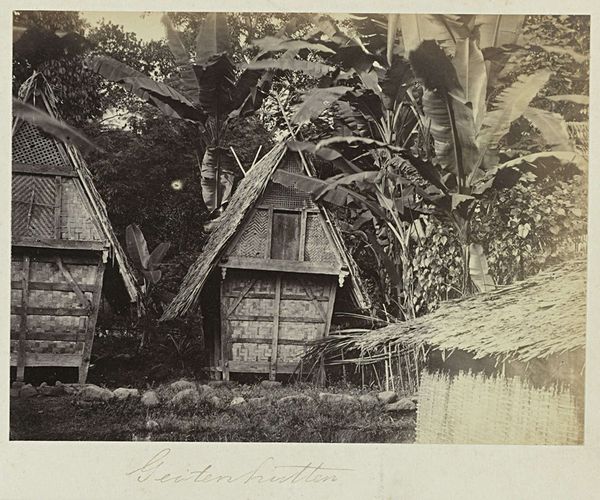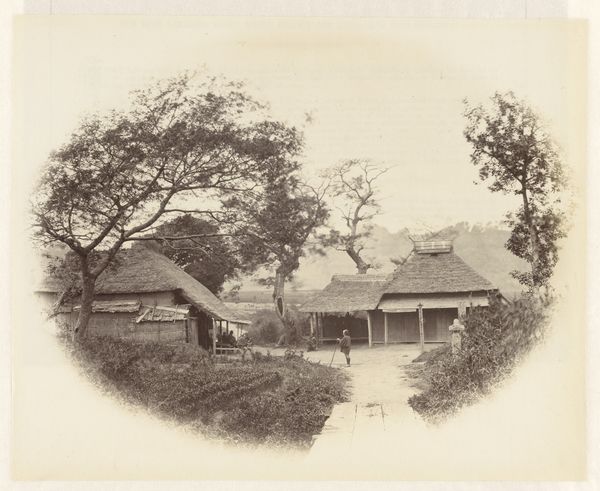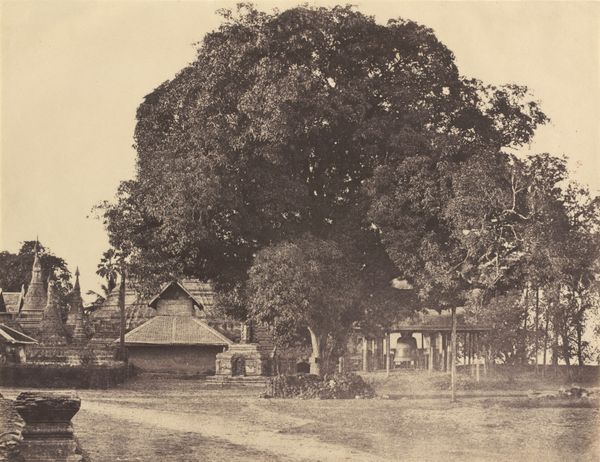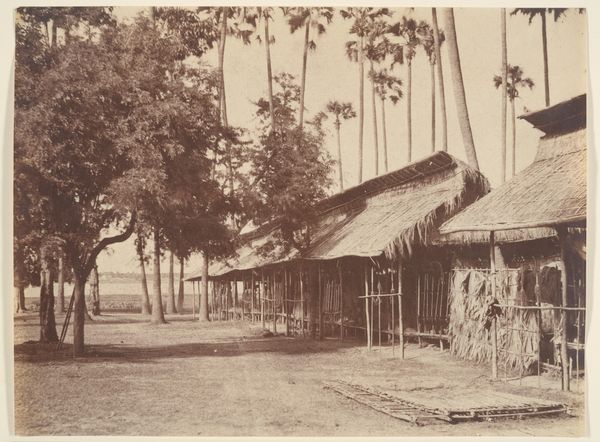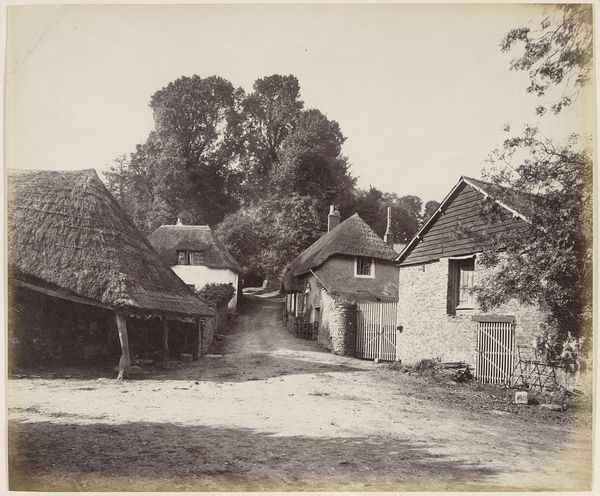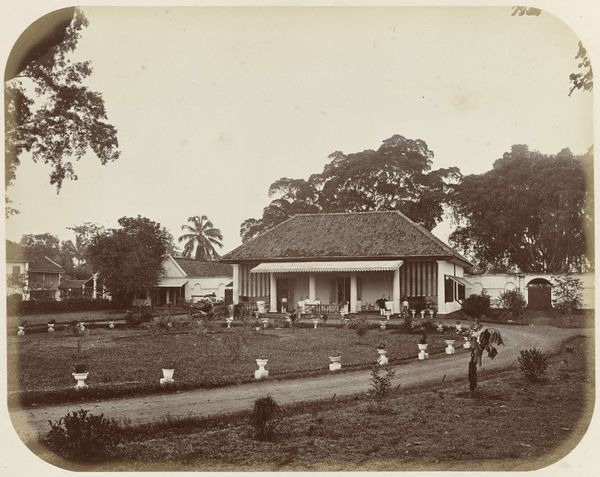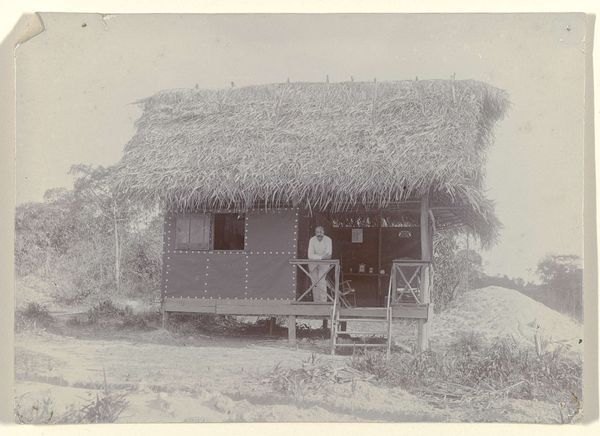
photography, albumen-print, architecture
#
african-art
#
landscape
#
photography
#
albumen-print
#
architecture
#
realism
Dimensions: Image: 20.3 x 27.9 cm (8 x 11 in.) Mount: 40.6 x 50.8 cm (16 x 20 in.)
Copyright: Public Domain
This photograph of Turbo Village was taken by John Moran in the late 19th century, using the wet collodion process, a laborious technique that required coating, sensitizing, exposing, and developing glass plates within a short timeframe. The sepia tones, a result of the chemicals used, give the image a timeless quality, contrasting with the immediate, almost snapshot-like composition of the village scene. The thatched roofs and simple wooden structures speak to the local materials at hand and the vernacular building techniques, suggesting a close relationship with the natural environment. Moran’s choice of photography, then a relatively new medium, highlights the intersection of technology and artistic vision. Photography, unlike painting, has strong ties to both artistic practice and industrial innovation. Consider the labor involved in creating this single image. By valuing both the artistic skill and technical processes involved, we gain a richer understanding of the photograph as a cultural artifact, challenging any strict boundaries between art and craft.
Comments
No comments
Be the first to comment and join the conversation on the ultimate creative platform.
